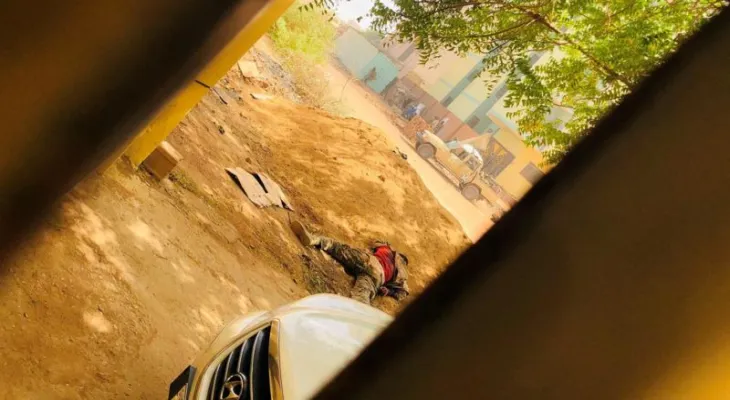Search here
Newspaper
Search here

Arab Canada News
News

Published: August 16, 2023
The sounds of gunfire and artillery in the Sudanese capital, Khartoum, have not quieted since mid-April, with dozens of deaths and injuries occurring daily, whether from the warring parties or civilians, due to this war which has entered its fifth month, while local authorities and international organizations struggle to accurately count the number of conflict victims.
The preliminary committee of the Sudanese Doctors' Union states that it is difficult to estimate the number of victims in the country, as many families have been forced to bury their dead at home due to the inability to reach cemeteries, especially in areas experiencing ongoing clashes like Omdurman and Khartoum North, not to mention reports of corpses scattered in the streets that have not been buried.
Eyewitness Ihsan Abdel Aziz does not hide her pain and sorrow as she recounts to the program "Sudan Peace," which is broadcast on the BBC, the scene she witnessed. She says: "I passed by dozens of corpses lying near the Shambat bus stop close to the central market," and adds, "Some of these bodies were covered, and I am sure many of them belong to civilians. A person cannot bear to see that; my heart nearly breaks."
In a similar scene, journalist Othman Fadlallah confirms that "hundreds of corpses are scattered in Martyr Matar Street, one of the largest and most famous streets in Khartoum North, and that this scene has become common in most areas of Khartoum, where the scattered bodies are vulnerable to being tampered with, as dogs gnaw at them, and no one can approach them to bury them." Meanwhile, passersby walk over those corpses which have become "the pavement" without touching them.
Fadlallah notes that reaching cemeteries has become extremely difficult given the current security situation, especially in Omdurman, where residents of the Ambeda area attempted to bury four bodies in the nearby cemetery, but "the funeral procession came under gunfire from one of the warring parties."
Fadlallah recounts to the program "Sudan Peace," the story of the Sudanese musician Khaled Al-Sanhoori, who died after a battle with illness in his home days after the current war began in Khartoum, and his family was forced to bury him in front of his house due to the difficulty of reaching the cemetery, which is only a few meters from his home, explaining that many "citizens' homes have become cemeteries for the dead."
"A plague" threatens everyone
Local and international organizations, the latest being the British Save the Children organization, have warned of the dangers of leaving the bodies in the streets, stating "that they pose a threat to the population due to their decomposition and putrefaction, as they can be a major cause of the spread of epidemics and diseases," especially since the current situation in Sudan prevents the implementation of campaigns to combat disease vectors.
Comments